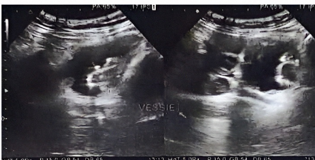Targeting the Warburg Effect with Glucose Mutation Theory in Post-Cystectomy, Chemotherapy-Contraindicated Cases: A Case Study of a 72-Year-Old Female Treated with Glucosodiene Over a 20-Day Period
DOI:
https://doi.org/10.23958/mcha/vol02/i03/51Keywords:
Bladder Cancer, Chemotherapy, Chemotherapy Ineligible Cases, Total Cystectomy, Glucose Mutation Theory, GlucosodieneAbstract
This manuscript delves into the intricate landscape of bladder cancer, highlighting the challenges of early detection and the nuanced considerations involved in chemotherapy decision-making based on patient-specific factors. The Maher Akl's groundbreaking Glucose Mutation Theory presents Glucosodiene as a promising breakthrough. The case presentation meticulously details the journey of a 72-year-old woman diagnosed with high-grade papillary urothelial carcinoma, spanning from initial diagnosis to postoperative outcomes. In the face of Bacillus Calmette-Guérin (BCG) therapy failure, Glucosodiene emerges as a safe and reliable alternative, offering a novel and effective treatment avenue, especially in cases where traditional chemotherapy is contraindicated. This approach advocates for Glucosodiene as a primary therapeutic option after the shortcomings of conventional treatments, instilling confidence in its efficacy and safety, particularly for cases deemed ineligible for chemotherapy.
Downloads

Downloads
Published
Issue
Section
License
Copyright (c) 2024 Maher Akl (Author)

This work is licensed under a Creative Commons Attribution 4.0 International License.
Creative Commons License All articles published in Medicine & Community Health Archives are licensed under a Creative Commons Attribution 4.0 International License.



